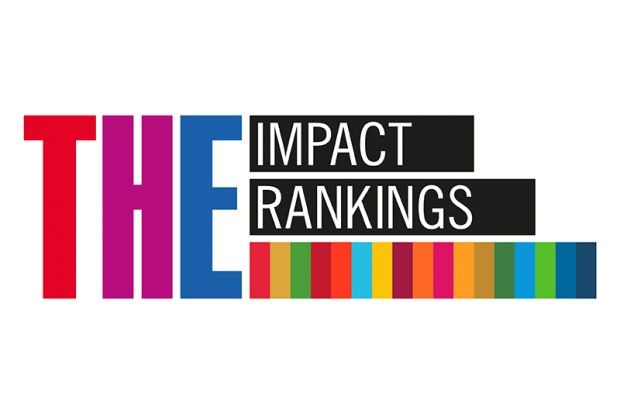SECOND TIMES HIGHER EDUCATION IMPACT RANKINGS MAPS CRUCIAL ROLE OF WORLD’S UNIVERSITIES IN SOLVING THE GREATEST GLOBAL CHALLENGES, FROM SLOWING CLIMATE CHANGE TO PRODUCING AFFORDABLE AND CLEAN ENERGY
London, 22 April 2020
- First of its kind university ranking maps actions institutions across the globe are taking towards the UN’s 17 Sustainable Development Goals
- Interactive data visualisation brings rankings to life: http://timeshighereducation.com/impact-visual
- University of Auckland holds overall ranking top spot for second year running, despite an additional 301 participating institutions
- Six countries and regions represented in the top 10, 10 in the top 20, and 20 in the top 50, suggesting how seriously action on SDGs is being taken by institutions across the globe
- Only three universities from the US are ranked in the top 100
- China and Brazil break up developed economies’ domination of top 20
From unlocking the potential of clean fuel cell energy, to developing affordable water purification tools and creating life-saving breathing aids for coronavirus patients, in the past year alone universities across the globe have been responsible for providing some of the best hope of solving the world’s biggest challenges.
Released today, the second edition of THE’s (Times Higher Education) new Impact Rankings uses the United Nations’ (UN) 17 Sustainable Development Goals (SDGs) to help shine a light on these often unsung actions. The Rankings provide a measure of the extent to which universities are having a positive social and economic impact on the planet; from climate action and gender equality, to good health and wellbeing. It is the first university ranking to use this criteria, rather than traditional metrics, such as reputation and research prestige.
The Rankings clearly show the collective efforts of higher education institutions across the globe, from the developed world, to the lowest-income countries and regions. In total, 857 universities from 89 countries and regions across six continents have been ranked for at least one SDG and 766 are included in the overall ranking.
THE has created a visualisation that maps all of the institutions in the overall ranking, bringing to life the stories within the data, showing you which universities across the world are ranked, which of the SDGs they perform most strongly against, and what trends this shows in a global context: http://timeshighereducation.com/impact-visual
At the top of the overall rankings Australasian universities dominate, securing the top four spots. The University of Auckland holds on to first place despite an extra 301 universities appearing in the ranking, followed by Australia’s University of Sydney (2), Western Sydney University (3), and La Trobe University (4). No Australian university appeared in the 2019 top 10. The rest of the top 10 is made up of the US’s Arizona State University (Tempe) (5), Italy’s University of Bologna (6), Canada’s University of British Columbia (7), the UK’s University of Manchester (8) and King’s College London (9), and Australia’s RMIT University (10).
The domination of the top 20 by developed economies is broken up by China’s Tongji University (13) and Brazil’s University of Sao Paolo (14), both of which enter the ranking for the first time. There is also a notable achievement by Indonesian universities, with three institutions enjoying top 100 positions – the University of Indonesia (=47), Universitas Gadjah Mada (72), and IPB University (=77) suggesting that being less wealthy is not a barrier to success.
Following the success of last year’s inaugural Impact Rankings, the 2020 Rankings now recognise and celebrate the global efforts of those achieving progress against all 17 SDGs, up from 11 SDGs included in 2019. In the 17 individual SDG Rankings, 16 universities from nine nations take number one positions, including China, United States, Republic of Ireland, Denmark, Australia, New Zealand, Japan, Canada, and the United Kingdom.
Phil Baty, Chief Knowledge Officer at THE, commented: “We believe that universities are our greatest hope of solving some of the world’s biggest challenges, and THE’s Impact Rankings bring this to light like never before. Unlike many traditional rankings, participation is just as important as overall position, with institutions actively demonstrating how seriously they take their role in achieving a sustainable world. The results reveal how many are putting this at the heart of their missions.
“We’ve had a phenomenal response from institutions across the globe. Universities from Afghanistan to Vietnam have taken part, and a number of top 100 spots are held by universities from countries and regions that have never appeared in the upper echelons of the traditional THE world rankings before like Iran, Indonesia, Malaysia and Mexico. These rankings prove that traditional barriers to success like wealth or research prestige don’t matter when it comes to doing great things for sustainability. It’s clear that universities give us a lot to be hopeful for.”
(Press releases available upon request for China, Germany, India, Japan, South Korea, UK, and US)
